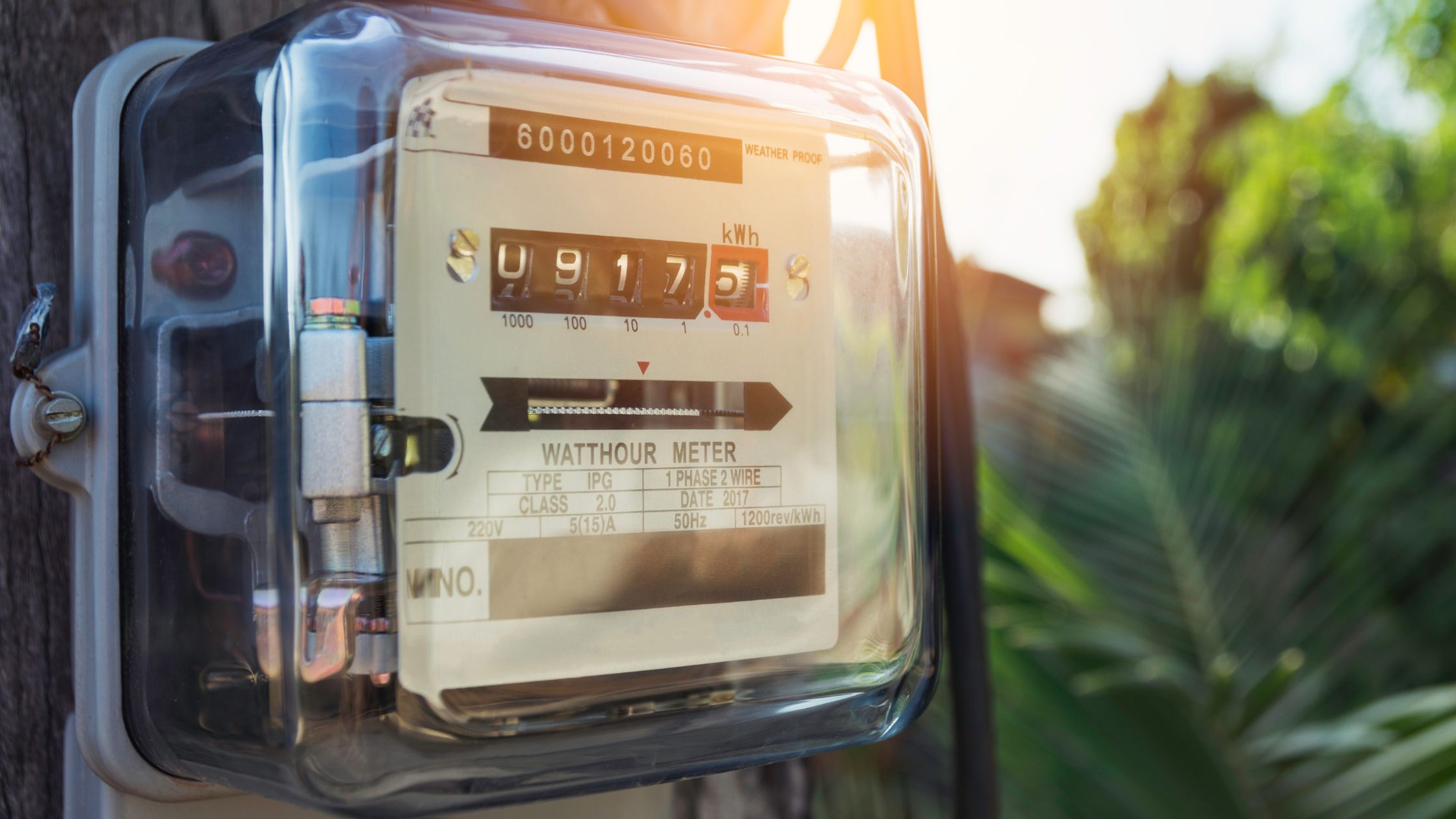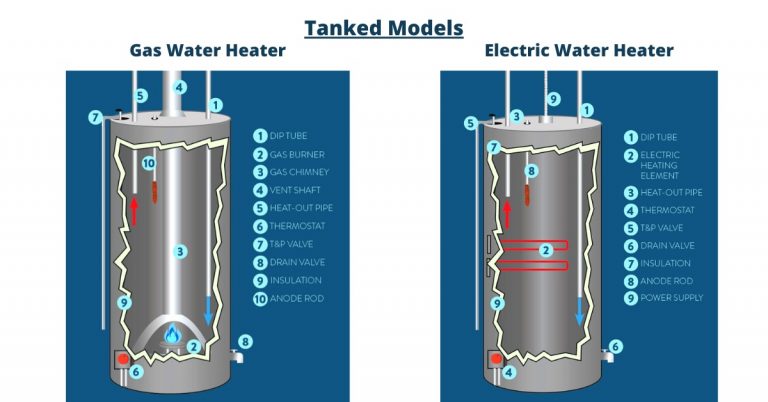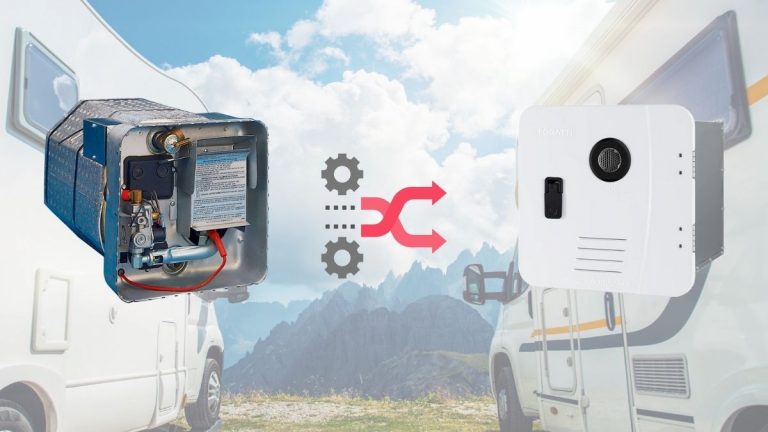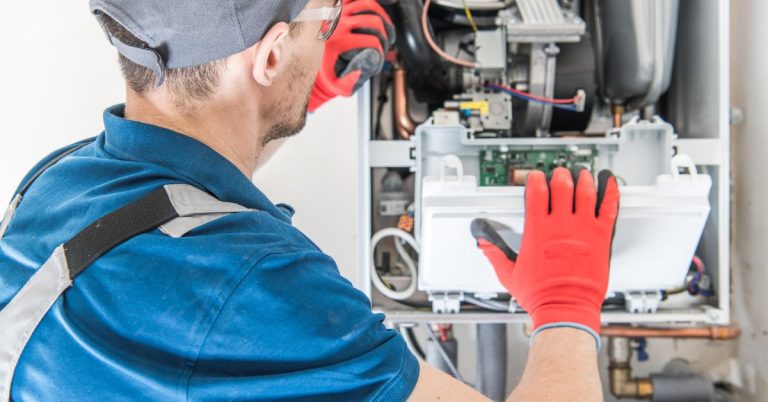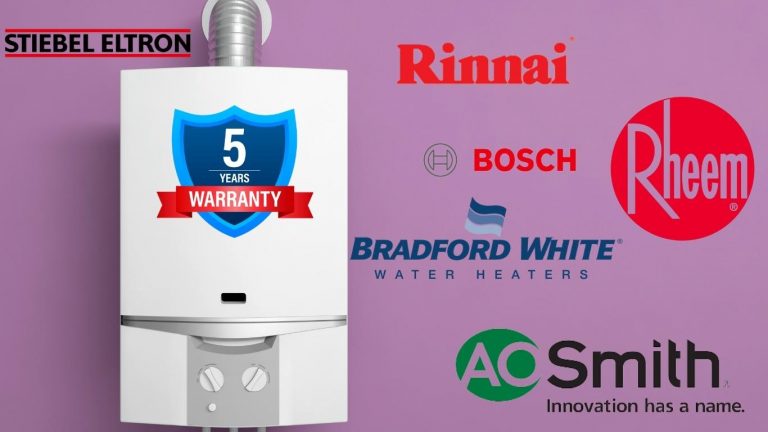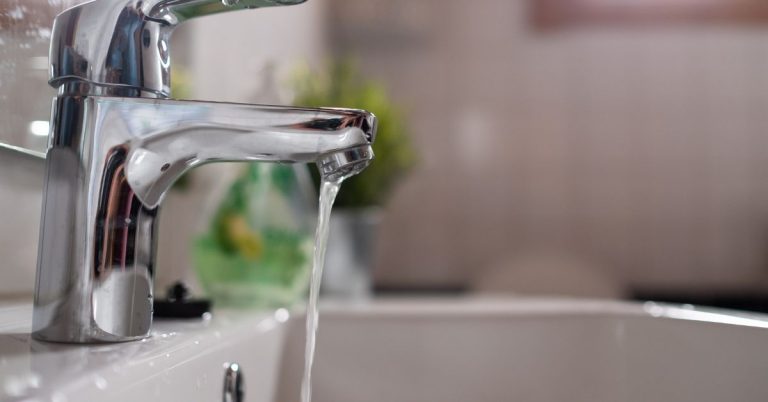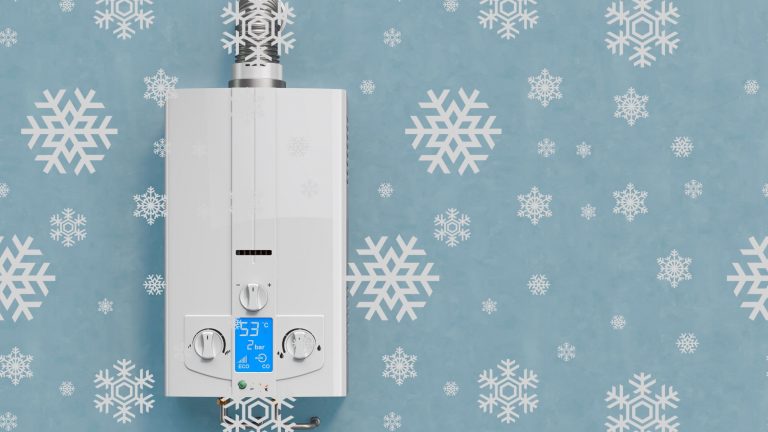How Much Electricity Does a Tankless Water Heater Use?
Tankless water heaters are a popular choice for many homeowners because they offer many benefits compared to a tank heater, such as energy efficiency and space savings. But one question often arises: how much electricity does a tankless water heater use? This article will examine how much power a tankless unit consumes and how you can save more on your energy bills.
The straightaway answer to how much electricity a tankless water heater uses is 8.588kW per day for a family of 4, which uses 80 gallons of hot water daily, as per our calculations below.
Roughly speaking, an electric tankless water heater uses a lot more energy than a conventional tank counterpart, but it does so in short bursts. Like it will only use a lot of energy for a few minutes or seconds. Want to know the exact figures? Let’s find out.
How much electricity does an electric tankless water heater use – Calculations
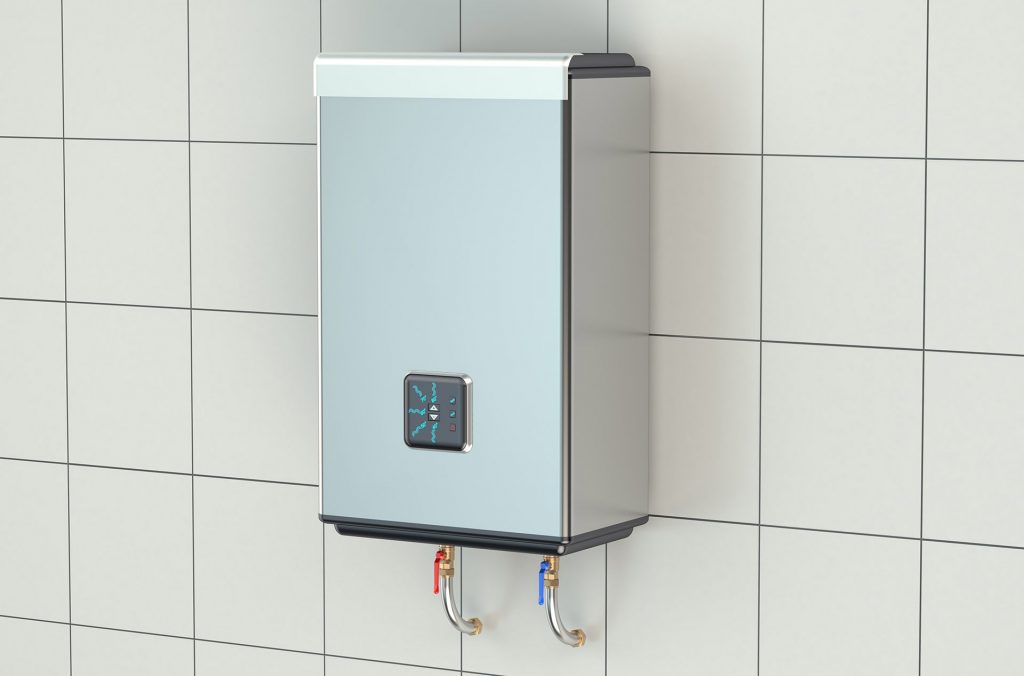
The electric tankless water heater’s energy consumption depends on several factors, such as the size and power rating of the unit, the water temperature, and the flow rate.
To calculate the cost of running an electric tankless water heater, you need to know how many watts it uses. You can find this information on the product label or in the owner’s manual. You can also search your model online to find it out.
For our calculations, we take the example of Stiebel Eltron Tempra 29 Plus, a popular whole-house electric tankless water heater with a 29kW power rating.
The water heater will consume a maximum of 29kW or 29,000 Watts of energy when the appliance is used at 100% capacity for an hour.
[ Remember, 100% of capacity here means drawing water at the heater’s max flow rate at its max heating capacity, which most households won’t need with such a large heater most of the time. ]
That said, let’s use a rather unconventional (but easy & straightforward) method to calculate your electric tankless water heater’s power usage/consumption.
Let’s assume your household uses 80 gallons of hot water (20 gallons per person) every day, which is valid for the average U.S. household, as per Sense blog.
The average inlet or incoming city water temperature is 60 F, and the ideal hot water temperature for the shower is 105 F. That means we need a temperature rise of 45 F in this case.
Taking the same example of the Stiebel Eltron Tempra 29 unit, at 45 F rise, it renders 4.50 GPM of max hot water (as per official specs). Running at full capacity.
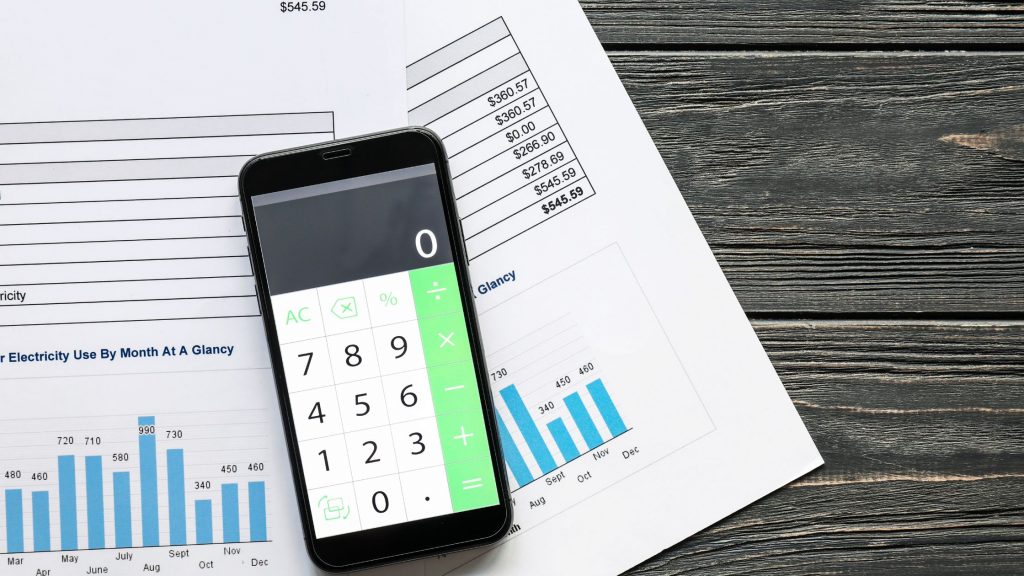
Let’s do some simple math now:
Your household uses 80 gallons of hot water daily, and this water heater can supply 4.5 gallons per minute.
So 80 / 4.5 = 17. 77 minutes per day.
Tempra 29 consumes 29-kilowatt hourly at full capacity.
29kW / 60 Minutes = 0.483kW/minute
You are using the heater for 17. 77 minutes per day i.e.
0.483kW x 17.77 Minutes = 8.588kW consumption per day.
According to the U.S. BUREAU OF LABOR STATISTICS, as of Aug 2022, the average price of electricity in the U.S. is $0.167 per kWh, so the running cost of this water heater would be:
8.588kW x $ 0.167 = $1.43 / per day in above scenario.
Thats 30 days x $1.43 = $42.9 per month.
And 12 x 42.9 = $514.8 annually for using the electric tankless water heater alone.
The electric tankless water heater uses 3131.7kW annually on average.
I know you have many questions; obviously, you will use your water heater for more than just 17 or 18 minutes per day, right? That’s true, but then the time we calculated above is the duration for which you use the heater at its max capacity.
And mostly, you will use a water heater for a more extended period but at a lower or half of its heating capacity so that power consumption will spread thin over a long period.
I hope that made sense to you! It’s like boiling water in the cattle quickly at full power or slowly at reduced – both are pretty much going to consume equal fuel.
Also, the above numbers are just arbitrary. Your day-by-day, hot water use will vary, and your inlet, outlet, and thus temperature rise or T.R. (A critical factor affecting electricity usage) will vary. It all will affect your everyday power consumption. And this all changes from season to season.
For winter, your incoming water will be colder, so the needed T.R. will be higher, and GPM will drop, which means using the heater for extended periods. So you may pay more in winter but lesser in summer.
The above calculation will give you a rough idea of how much expenditure you will have to bear annually for the luxury of hot water. Put in your data and do the math for your situation to get your personalized consumption.
How much electricity does a gas tankless water heater use?
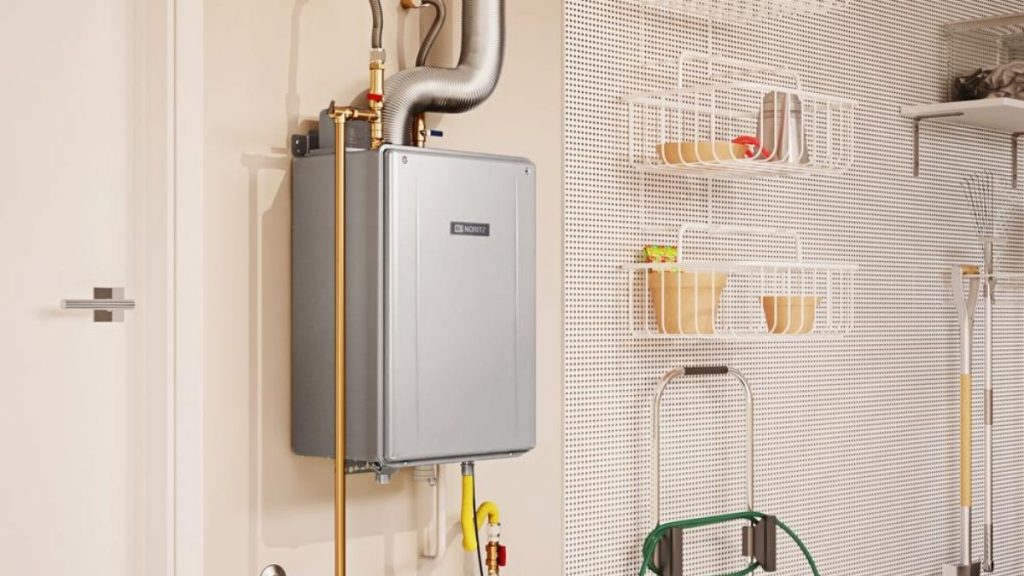
Gas tankless water heaters have minor electricity usage like ignition, running the control board, sensors, display, and all. So electricity consumption for a gas tankless water heater is insignificant.
We concern more with gas consumption in this case.
How does a tankless water heater fair against a traditional storage-tank water heater?
Tankless, on-demand water heaters are 24-34% more energy efficient than conventional storage tank water heaters, according to the U.S. Department of Energy.
The efficiency is due to eliminating standby losses observed with tank heaters. It can translate into significant savings on your energy bills, especially if you have a large family or high hot water demand.
One study found that tankless water heaters could save the average household between $100 and $400 per year on their energy bills. More on the pros and cons of tankless water heaters can be found in this article.
How to save money on your energy bills with a tankless water heater?
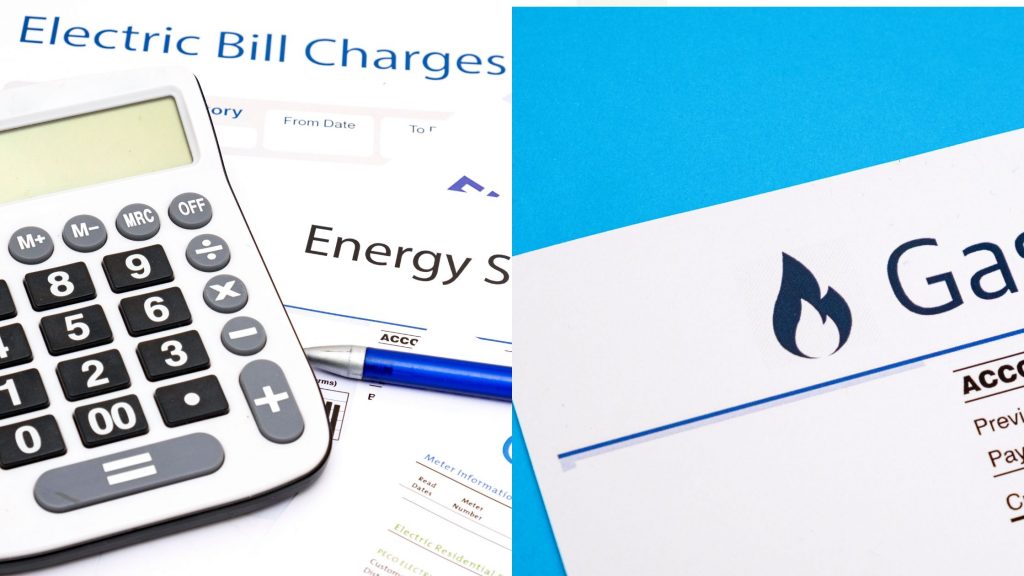
If you have or are considering a tankless water heater for your home, there are a few things you can do to maximize your savings and minimize the cost:
- Install a unit with a high Energy Factor (E.F.). The higher the E.F., the more efficient the unit and the lower your energy costs.
- Ensure the unit is installed correctly and maintained according to the manufacturer’s instructions. It will help assure optimal performance and efficiency.
- Flush and descale water heater at least bi-annually.
- Consider installing low-flow fixtures and water-saving showerheads. It will reduce the hot water you use, leading to further savings on your energy bills.
- Set your thermostat to the recommended temperature. Most tankless water heaters have a default setting of 140 degrees Fahrenheit. Still, you may be able to save even more money by setting it lower.
- Talk to your utility company about time-of-use rates. Some utilities offer special rates for electricity used during off-peak hours. With a tankless water heater, you can take advantage of these lower rates and save even more money on your energy bills.
Following these tips can maximize your energy savings and minimize the cost of operating a tankless hot water heater in your home.
Tips for choosing the right tankless water heater for your home?
When you’re in the market for a new tankless water heater, there are a few things to remember to choose the best option for your home.
- First, determine the hot water needs of your household. It will help you choose an appropriately sized unit for your home.
- Next, take into account the climate you live in. Suppose you live in an area with freezing winters. In that case, you’ll need a tankless water heater to handle lower temperatures.
- Then, consider the fuel type. Tankless water heaters are available in gas and electric models. Choose the kind that is best suited for your home. Also, consider which fuel type is cheaper in your locality.
- Select a unit with a high Energy Factor (E.F.) for max energy savings. The higher the E.F., the more efficient the heater and the lower your energy costs.
- Finally, think about your hot water needs. If you have a large family and everyone takes showers in the morning, you’ll need a tankless water heater with a higher flow rate.
By keeping these factors in mind, you can be sure to choose the right tankless water heater for your home. For more, head straight to our ultimate buying guide.
What factors affect how much electricity a tankless water heater uses?
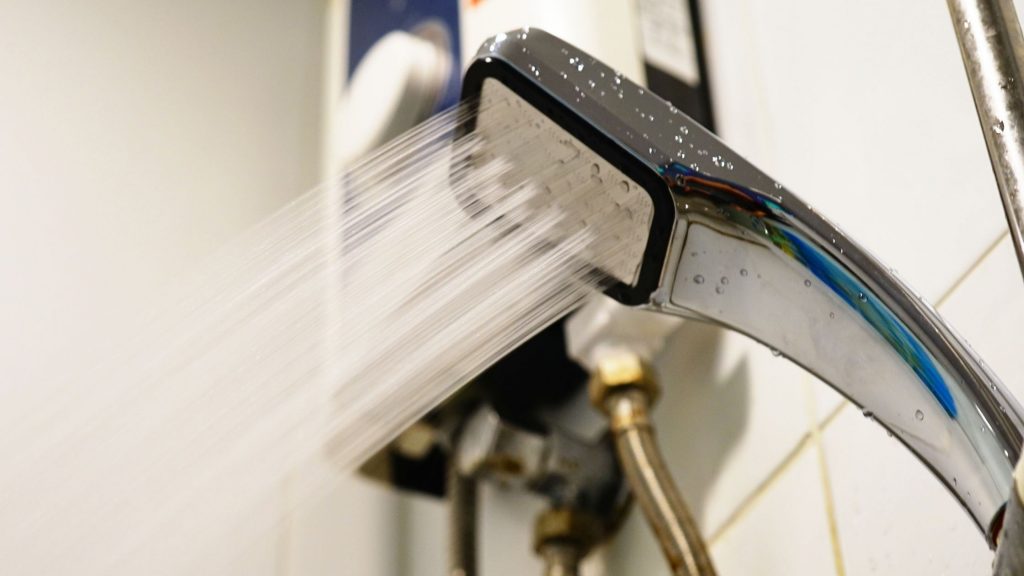
Several factors affect how much electricity a tankless water heater uses, including:
- The unit size: larger units will use more electricity than smaller ones.
- The climate: tankless water heaters will need to work harder to maintain the water temperature in colder climates and use more electricity.
- The water temperature: the higher the water temperature, the more electricity the heater will use.
- The flow rate: the higher the flow rate, the more electricity the heater will use.
If you’re interested in reducing the amount of electricity your tankless water heater uses, you can try adjusting some of these factors.
For example, you could install a smaller unit or lower water temperature. You could also reduce the flow rate by installing low-flow showerheads and faucets.
How does a tankless water heater work, and what are the benefits
Tankless water heaters use electricity to heat water on demand, so they are not constantly running and using energy like traditional storage tank heaters. It makes them more efficient since they only use power when you need hot water.
Also, tankless heaters tend to last longer than storage tank models since there are no tanks to rust or corrode.
Does that mean that tankless heaters require a lot of electricity?
Water heaters account for almost 14% of home energy consumption, according to GreenLogic. How much your tankless water heater uses depends on a few factors. Still, overall they are more efficient than traditional storage water heaters.
Do electric tankless water heaters require a huge amount of electricity?
The answer is yes and no! Yes, because tankless heater requires and uses enormous amounts of electricity when the appliance is operated at total capacity. And no, because you won’t need to use it at full capacity most of the time, and even if you do, it will be for a short period so it won’t be expensive.

